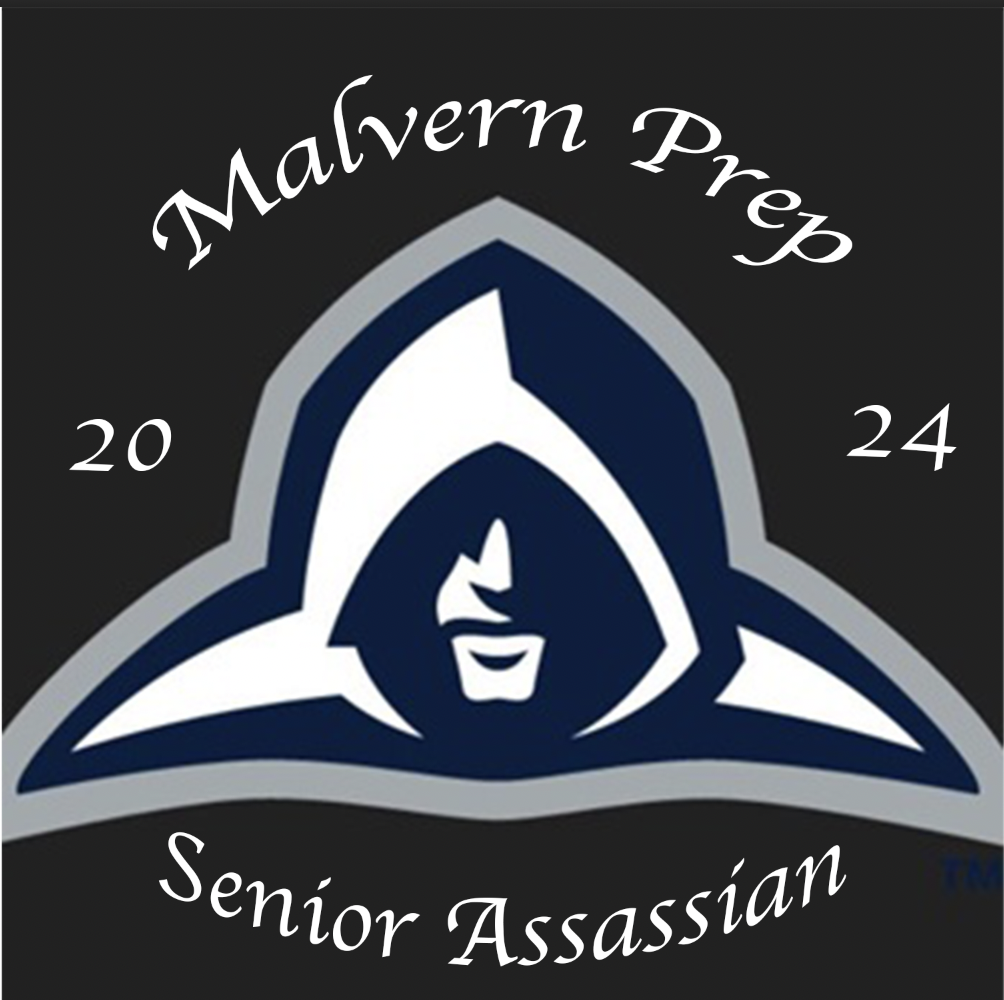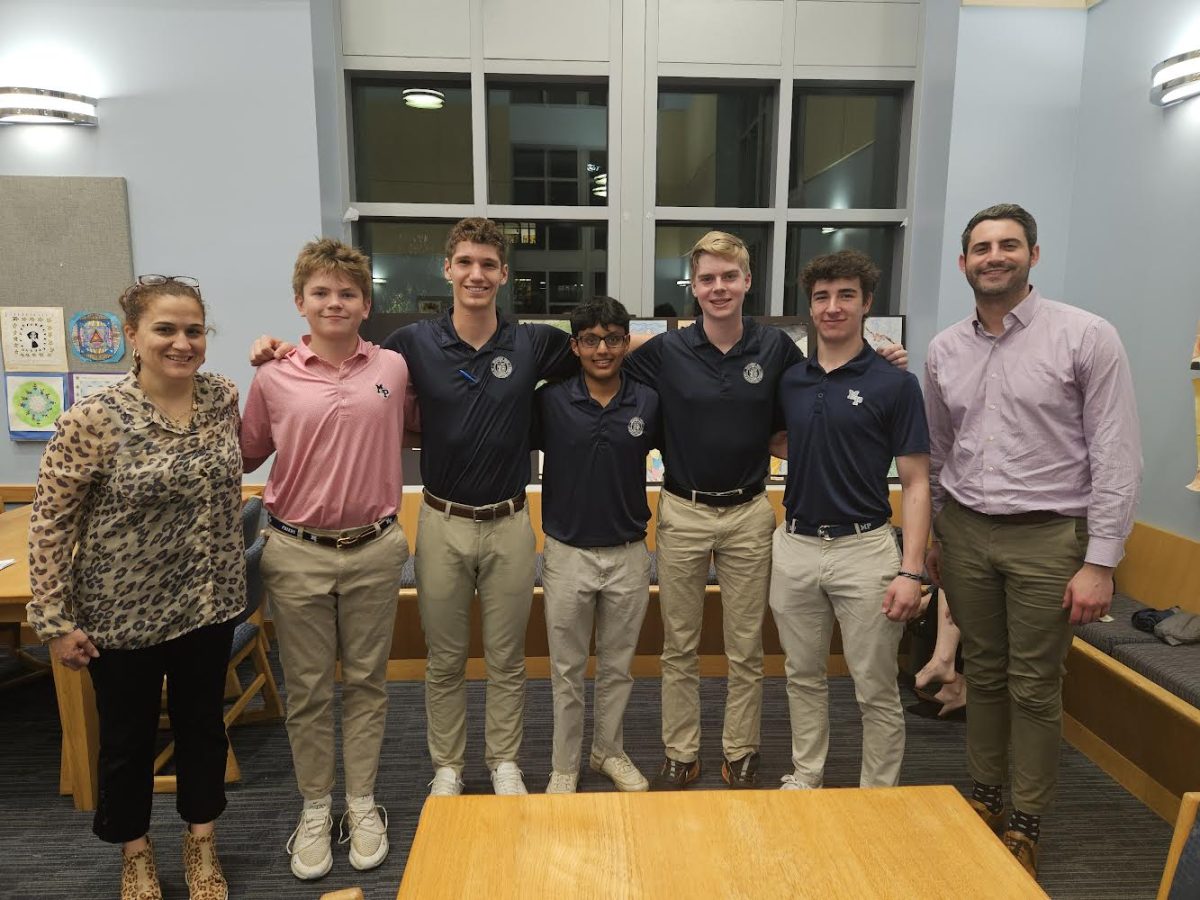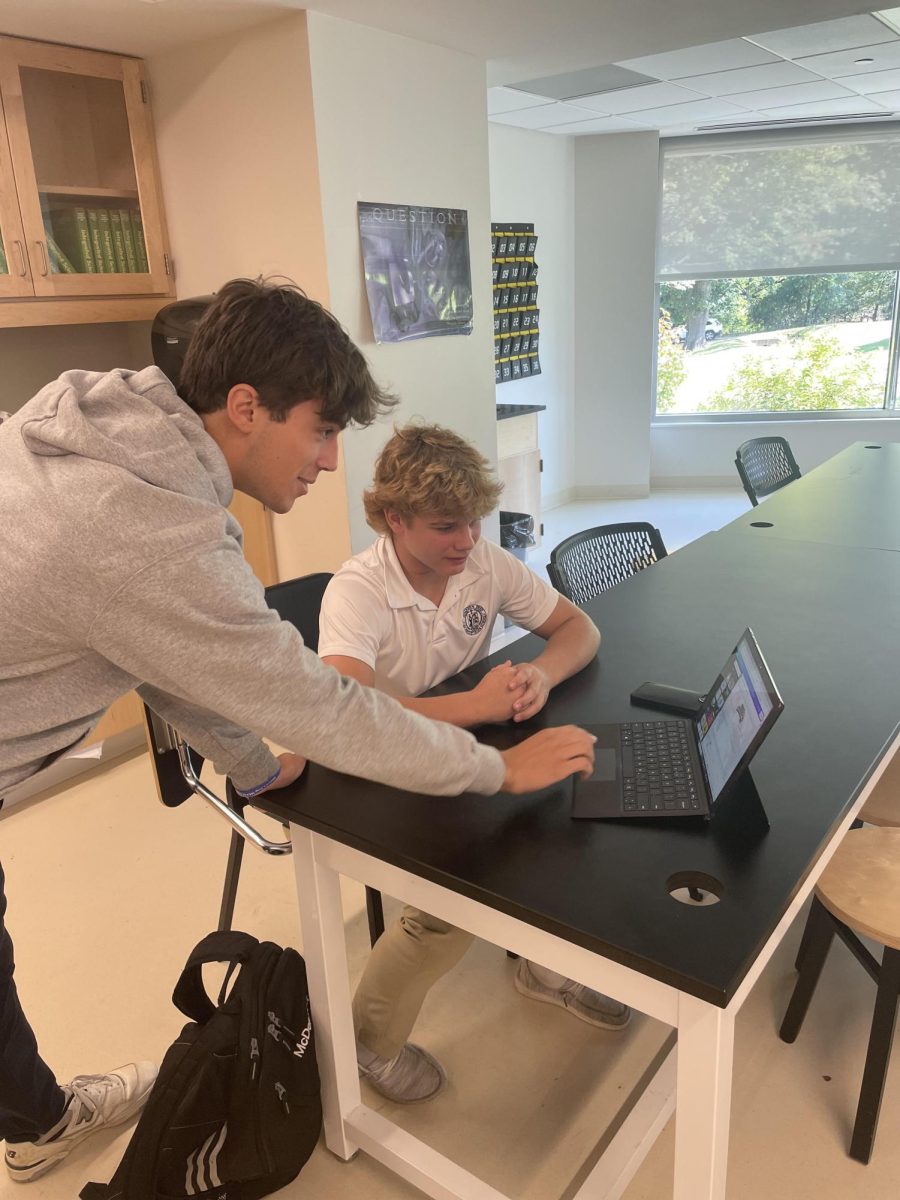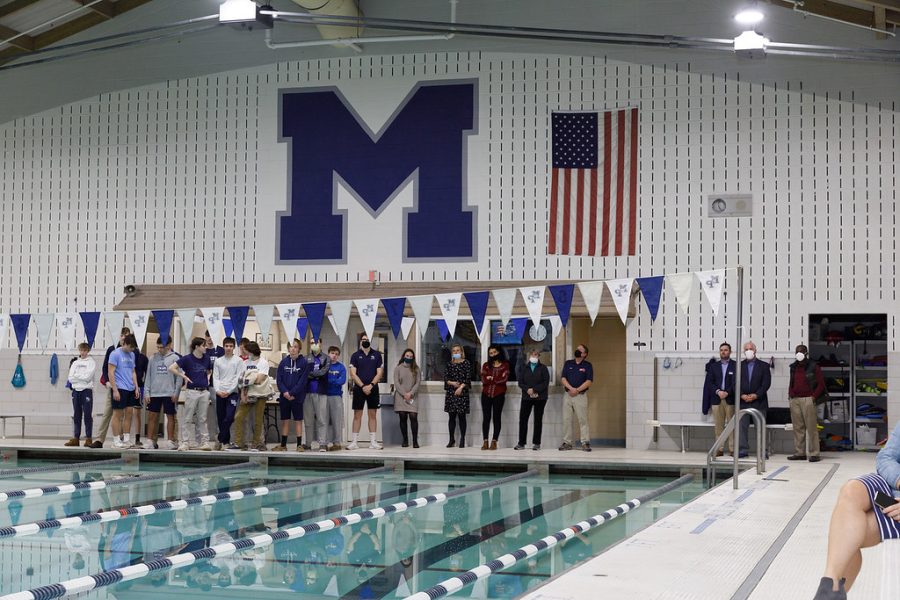On Wednesday, January 30th, the great folk musician Michael Miles came to Malvern to teach the entire Upper School the history of music and how it has progressed, and how almost every kind of music is linked somehow. Michael brought his Banjo and Guitar to explain the story of America’s musical past, and how it connects to modern music.
After Michael performed his shortened program (which is usually 2 hours long), Michael sat down with the Malvern Men’s Chorus and the Guitar Ensemble to speak about what he does, and he gave us a little bit of background on his life. The following conversation took place between the two classes and Mr. Miles:
Q: Who would you say is your biggest inspiration, and who would you consider your favorite artist?
A: They are all very different, but I am a big fan of Béla Fleck who has always been very supportive of me. He wanted to collaborate with me, and when I flew out to Nashville, I stopped by his house, and I saw his five Grammies on his shelf, and I thought to myself “OH MY GOD ARE THOSE 5 GRAMMIES?” After I got past these awards, I got to know him, and he was a really great guy, and a good influence on me.
Q: What and where was your first major tour?
I don’t do a lot of big tours like most stars, but I like to do a show here and there. My first recording was while I was director a folk music school in Chicago, and we contacted Pete Seeger, and Pete wrote me a letter saying “Dear Mike, looks like you’re doing a great job, keep it up! Your friend, Pete.” I wrote him back very excited, and then I sent him some of my music and he wrote me back saying “of all the things I have heard in 70 years, it was one of the most beautiful.”
Q:How American is the banjo?
A: Great question, but it is actually very African. The technology of string instruments with drums was a worldwide thing. Now the current banjo is very Americanized with America’s industrial revolution, but the notion that the banjo is an American instrument is nonsense, however it was embraced more here.
Q: Which instrument did you learn first, and when?
A: The guitar first when I was about 11 or 12.
Q: How was learning the banjo after that?
A: I picked one up and found it out myself, and picked it up on my own and taught myself. Now everyone is doing everything on the guitar, and with the banjo there is less experimenting, and it was different, but I need to play them both to be “cool”. I heard it first in France actually, and I was very intrigued.
Q: With bands like the Mumford and Sons, why do you think the banjo is becoming popular again?
A: Hmmm… Global warming? (Chuckle) I’m not very sure, but with popular artists like Taylor Swift, and the Mumford and Sons bringing it back in, that’s an obvious reason that you can’t ignore.
Q: When did you first think you wanted to do what you do? The educational aspect of your career mostly.
A: My educational background was nothing big with music, and once I left college I lived off of playing music in bars. The historical and literary story is very Interesting to me. I made a show called “the magic banjo” with many old artists, and new in the show such as Walt Whitman, Bach, and Pete Seeger. I couldn’t go far off of marketing with “playing the banjo!”, but if I framed it with a show like the magic banjo, I could get a bigger audience, and a career with it.
Q: Looking at the banjo, why is one tuner at the middle of the banjo?
A: One of the strings is actually only going up halfway and it can be used for a wide variety of things, and adds to an interesting aspect of the banjo.
Q: Any interesting recording stories?
A: Yeah, it’s interesting because the digital world has changed so much, and while I was recording certain things earlier, it was really hard because of how difficult the certain music was to play, but any time I messed up, they could just fix it. It wasn’t my art anymore, it was the engineer’s art. I told him I wanted to go home, and that I wanted to perfect it so it would be MY art again. There are way too many pitch correctors these days, and in my eyes it comes down to performance. I want to get it right in 3 or 4 tries, or I scratch it, and fix it for a later time.
Q: Now let’s be honest, how was Mr. Liga in class?
A: He was a true ROLE model student (chuckles).
Q: Which do you prefer more, banjo or guitar?
A: I need them both! They’re like my children.
Q: Seeing a lot of your videos, are you ever not wearing a vest?
A: (Chuckle) well no! I find that wearing a suit makes it hard to switch instruments, and without a vest I look unkempt! Funny story though is when I forgot one, so I ran down to a local Men’s Wearhouse, and got one, and the worker kept on telling me that I looked “sharp”, and it was a very funny moment just because of the slogan of Men’s Wearhouse. You’re gonna like the way you look!
It was very great to see Mr. Miles last week, and it was a very amazing to actually perform with him. He is a fascinating man, and no matter how small he may be in our eyes, he is a very big musician in the Folk community. We are very lucky to have been able to see him perform, and I am very grateful for him showing us everything he has. No matter what kind of music we listen to, appreciating this man is a must because these kind of assemblies don’t come to Malvern often.





